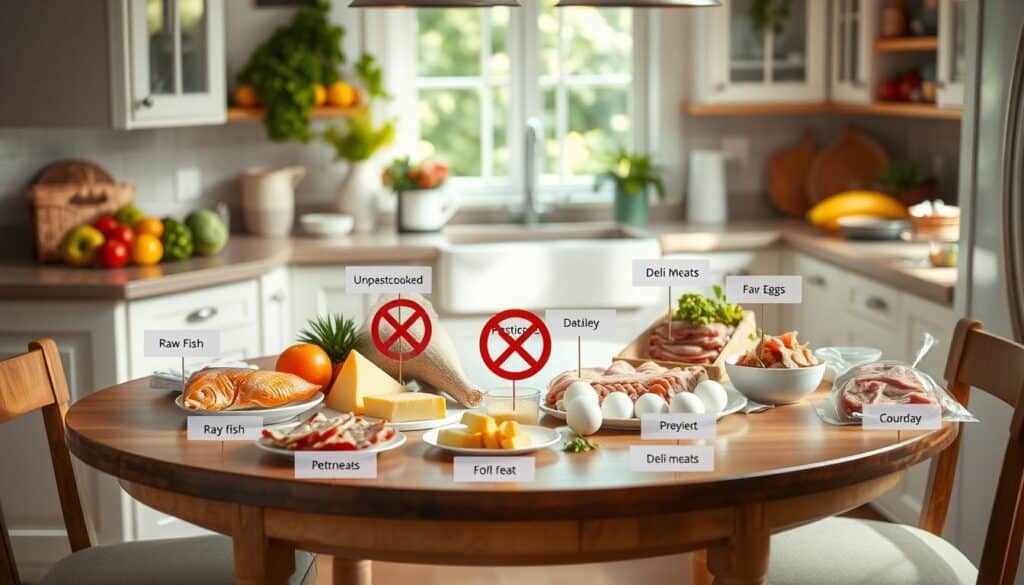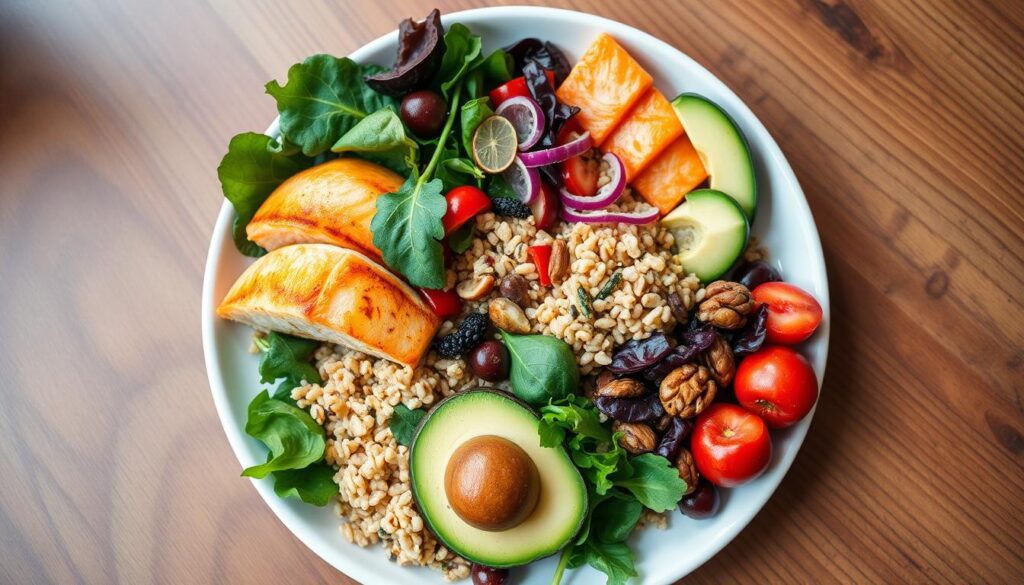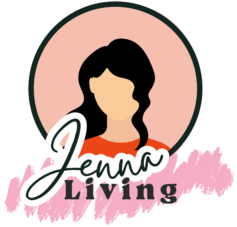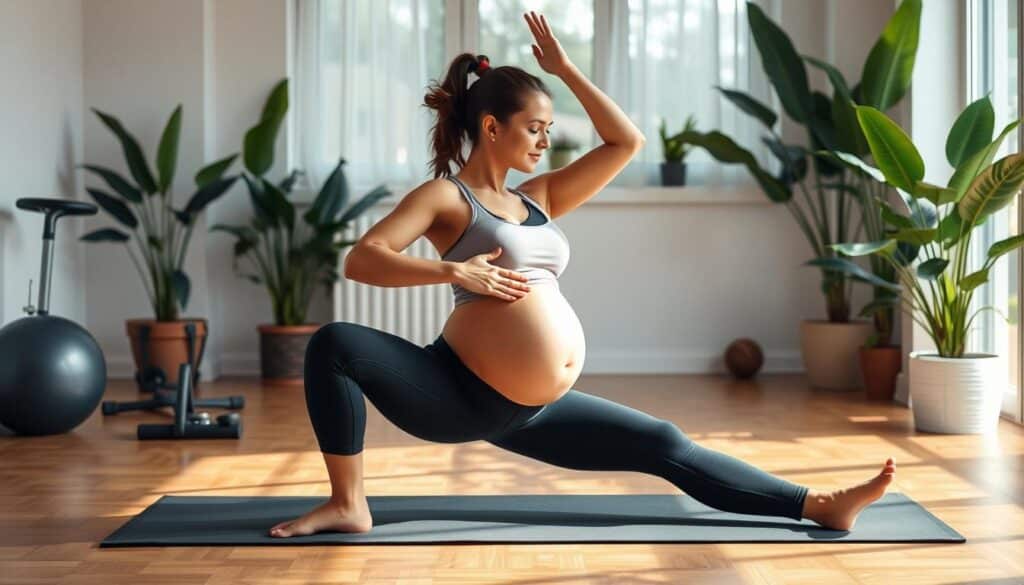As I waited for my baby’s arrival, I knew nutrition was key. Eating right helped me stay healthy and supported my baby’s growth. This guide on pregnancy diet, healthy eating during pregnancy, and prenatal nutrition will help you make good choices for a healthy pregnancy.
Learning to nourish my body was more than just eating for two. It was about finding the right balance of nutrients and planning meals carefully. Let’s dive into the world of pregnancy diet and find out which foods are best for you and your baby.
Understanding Pregnancy Nutrition: The Foundation of Maternal Health
Good nutrition during pregnancy is key for both mom and baby. Knowing the basics of pregnancy nutrition helps you make choices that support your baby’s growth. Let’s explore why nutrition is important, the nutrients your baby needs, and how your calorie needs change.
Why Proper Nutrition Matters During Pregnancy
Eating well during pregnancy is vital for many reasons. It provides the nutrients your baby needs to grow and develop. It also keeps you healthy and full of energy, making pregnancy easier.
Key Nutrients for Fetal Development
There are several important nutrients for fetal development:
- Protein for cell growth and tissue repair
- Folic acid (vitamin B9) for neural tube development
- Calcium and vitamin D for strong bones and teeth
- Iron for healthy blood and oxygen circulation
- Omega-3 fatty acids for brain and eye development
Caloric Needs Throughout Pregnancy
Your calorie needs change as you progress in your pregnancy. In the first trimester, your calorie needs might stay the same. But as your baby grows, you’ll need more calories. By the third trimester, you might need an extra 300-500 calories a day.
Learning about pregnancy nutrition basics, fetal development nutrients, and pregnancy calorie requirements helps you make good choices. This supports both you and your baby, setting the stage for a healthy pregnancy.
Essential Foods for a Healthy Pregnancy Diet
For a balanced pregnancy diet, focus on certain foods. These pregnancy superfoods give you and your baby the vitamins and minerals you need. They also support your health. Here are the key foods to add to your balanced pregnancy diet.
Leafy Greens
Leafy greens like spinach, kale, and Swiss chard are full of nutrients. They have folate, iron, calcium, and antioxidants. These help protect you and your baby.
Whole Grains
Whole grains, like quinoa, brown rice, and whole wheat bread, give you energy. They also have fiber and B vitamins. These nutrients support a healthy pregnancy.
Lean Proteins
Lean proteins, such as chicken, turkey, eggs, and legumes, are key for your baby’s growth. They help build tissues and keep your immune system strong.
| Pregnancy Superfood | Nutrient Benefits |
|---|---|
| Avocado | Rich in healthy fats, folate, and vitamins C and E |
| Salmon | High in omega-3 fatty acids, protein, and vitamin D |
| Berries | Packed with antioxidants, fiber, and vitamins C and K |
Adding these pregnancy superfoods and other nutrient-dense foods to your balanced pregnancy diet is crucial. They ensure you and your baby get the nutrients needed for health and growth.
Vital Proteins and Iron-Rich Foods for Expecting Mothers
It’s important for pregnant women to eat enough protein and iron. Protein helps the baby grow, and iron is needed for more blood. This blood supports both the mom and the baby.
Complete Protein Sources
Expectant mothers need high-quality protein. Good choices include:
- Lean meats, such as chicken, turkey, and pork
- Fish, particularly fatty varieties like salmon, tuna, and mackerel
- Eggs, which provide a readily available and bioavailable form of protein
- Dairy products, including milk, yogurt, and cheese
Plant-Based Protein Options
Vegetarian or vegan moms can find plenty of protein in plants. Some great options are:
- Legumes, such as lentils, beans, and peas
- Nuts and seeds, including almonds, walnuts, and chia seeds
- Whole grains, like quinoa, brown rice, and oats
- Soy-based foods, such as tofu, tempeh, and edamame
Iron-Rich Food Combinations
To get more iron, eat foods high in vitamin C with iron-rich foods. Here are some good pairings:
- Spinach salad with bell peppers and grilled chicken
- Lentil curry with tomatoes and whole-wheat naan
- Roasted beets with goat cheese and walnuts
By eating a mix of proteins, plants, and iron-rich foods, pregnant women can meet their needs. This is key for a healthy pregnancy.
Fruits and Vegetables: Your Pregnancy Powerhouse
During pregnancy, eating lots of fruits and vegetables is key for you and your baby. These foods are full of nutrients like antioxidants, fiber, and vitamins. They help your baby grow and keep you healthy.
Antioxidants in fruits and veggies fight off stress in your body during pregnancy. Foods like berries, leafy greens, and bell peppers are rich in vitamins C and E. These help keep your immune system strong and lower the chance of pregnancy problems.
Fiber in foods like apples, pears, and broccoli is also vital. It helps your digestion, keeps blood sugar stable, and might prevent diabetes during pregnancy. Soluble fiber in fruits and veggies also helps avoid constipation, a common issue for pregnant women.
Pregnancy Fruit and Vegetable Superstars
- Spinach – High in folate, iron, and calcium, essential for fetal development.
- Blueberries – Packed with antioxidants and fiber to support maternal and fetal health.
- Sweet potatoes – Rich in beta-carotene, which converts to vitamin A for immune function.
- Avocados – Provide healthy fats, fiber, and a variety of vitamins and minerals.
- Citrus fruits – High in vitamin C to boost immunity and support collagen production.
Eating a variety of fruits and vegetables during pregnancy is good for you and your baby. It helps you both do well throughout your pregnancy.
Nutrition During Pregnancy: Critical Vitamins and Minerals
During pregnancy, some vitamins and minerals are more important than ever. These include folic acid, calcium, and vitamin D. They are key for the health of both the mother and the baby.
Folic Acid Sources
Folic acid, or vitamin B9, is crucial for the baby’s brain and spinal cord development. It helps prevent serious birth defects. You can find folic acid in leafy greens, citrus fruits, beans, and fortified cereals.
Calcium-Rich Options
Calcium is vital for the baby’s bones and the mother’s bone health. Dairy products like milk, yogurt, and cheese are great sources. Tofu, leafy greens, and fortified plant-based milks are good alternatives for those who don’t eat dairy.
Vitamin D Requirements
Vitamin D helps with calcium absorption and immune function during pregnancy. While sunlight can produce vitamin D, many pregnant women need supplements. Fatty fish, egg yolks, and fortified foods are good sources.
Eating foods rich in these vitamins and minerals supports your baby’s growth and your health. Talk to your healthcare provider about the right amounts and supplements for you.
Foods to Avoid While Pregnant
Keeping a healthy diet is key when you’re pregnant. There are foods that pregnant women should not eat. These pregnancy food restrictions help keep both mom and baby safe from harmful foods during pregnancy.
Raw or undercooked meats, eggs, and seafood are off-limits. They can have Salmonella and Listeria, which are dangerous. Stick to fully cooked, hot proteins instead.
- Avoid raw fish, including sushi and sashimi.
- Steer clear of rare or medium-rare hamburgers, steaks, and pork.
- Ensure eggs are cooked until the yolks and whites are firm.
Unpasteurized dairy and soft cheeses should also be limited. They might have Listeria, which can cause listeriosis. Safe options include pasteurized milk, yogurt, and hard cheeses.
Lastly, cut down on caffeine, alcohol, and fish with high mercury like shark and swordfish. These food safety for pregnant women rules help keep the pregnancy and delivery healthy.
| Foods to Avoid | Potential Risks | Safer Alternatives |
|---|---|---|
| Raw or undercooked meats, eggs, and seafood | Salmonella, Listeria | Fully cooked proteins |
| Unpasteurized dairy products and soft cheeses | Listeria | Pasteurized milk, yogurt, and hard cheeses |
| High-mercury fish (shark, swordfish, tilefish) | Mercury poisoning | Low-mercury fish like salmon, tilapia, and cod |
| Alcohol and excessive caffeine | Fetal development issues | Water, herbal tea, and decaffeinated beverages |
By knowing these pregnancy food restrictions and following food safety for pregnant women tips, expectant moms can give their baby the best nutrients. They avoid harmful foods during pregnancy too.

Safe Food Preparation and Storage During Pregnancy
As an expectant mother, keeping your food safe is key for your health and your baby’s. Simple steps can help avoid foodborne illnesses. This makes your kitchen a safe place during this special time.
Food Safety Guidelines
For pregnancy food safety, watch how you handle food. Always wash your hands with soap and water before and after touching raw foods. Use different cutting boards and utensils for raw and cooked foods to avoid mixing bacteria.
Kitchen Hygiene Tips
- Keep your kitchen counters, utensils, and appliances clean and sanitized.
- Regularly disinfect your refrigerator and freezer to prevent the growth of harmful bacteria.
- Practice kitchen hygiene for pregnant women by wearing clean aprons and tying back long hair.
Temperature Control Basics
Controlling food temperatures is crucial during pregnancy. Use a food thermometer to check meat, poultry, and seafood. Make sure they reach the safe internal temperatures. Refrigerate or freeze perishable foods quickly. Never leave them out for more than two hours.
| Food Item | Safe Internal Temperature |
|---|---|
| Ground Meats | 160°F (71°C) |
| Poultry | 165°F (74°C) |
| Fish | 145°F (63°C) |
| Leftovers | 165°F (74°C) |
By sticking to these pregnancy food safety tips, kitchen hygiene for pregnant women, and food temperature control practices, you can make a safe space for your baby to grow and thrive.
Meal Planning and Portion Control for Pregnant Women
Keeping a balanced diet during pregnancy is key for your health and your baby’s growth. Good pregnancy meal planning helps you get all the nutrients you need. It also helps you control how much you eat.
For balanced pregnancy meals, mix different foods that are full of nutrients. Include lean proteins, whole grains, fruits, veggies, and healthy fats. Planning meals ahead makes it easier to add these important foods to your diet.
Choosing the right healthy pregnancy snacks is also important. Look for snacks that are full of nutrients but low in empty calories. Good options are yogurt with berries, veggies with hummus, or nuts and seeds. Knowing what you like and don’t like can help you pick better snacks.
Controlling your portions is another important part of pregnancy nutrition. Paying attention to serving sizes helps you eat more without getting too full. Use smaller plates, listen to when you’re hungry or full, and eat more fiber to feel full longer.

By using these meal planning and portion control tips, you can feed your body and your baby well. This is crucial during this important time.
Conclusion
A healthy pregnancy diet is key for both mom and baby. Eating foods rich in nutrients helps support growth and health. This includes proteins, iron, and lots of fruits and veggies.
We’ve talked about why good nutrition is important during pregnancy. It’s crucial for the baby’s growth and for the mom’s health. A healthy pregnancy diet summary is a great start. But, always talk to your doctor for specific pregnancy nutrition tips and advice.
Choosing the right foods is a big step towards a healthy pregnancy. It sets a strong start for your child’s life. A diet full of nutrients is powerful. It’s a journey filled with care and confidence.




